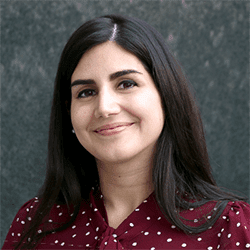Spotlight the Power of Coaching with a Case Study
Coaching yields inspiring success stories every day. Did you know that these stories can help share the power of coaching and create new opportunities?
When these stories are developed and shared in a structured way, it builds a business case for its impact. That’s what we call a case study.
But how do you tell the narrative in an effective way? Here are some important steps to take:
Connect with a Client
The first step in building an effective case study is to draw from your experience. Think of previous coaching clients who can offer a compelling and relatable story that shows the impact of coaching. Then, approach those clients and ask if they are willing to let you share their story.
As a first step, set up a call with your client to discuss why and how you want to share their story. When determining who has a compelling story to share, consider factors such as relevance to your coaching specialty, the demographic your clientele associates with, and the client’s take on the approach and tools used in the coaching process.
Here are some questions to ask to help you find your case study angle:
- Is this a professional or personal coaching story?
- Is the experience told from a specific demographic perspective? (Consider gender, generation, cultural context, etc.)
- Do you have a client with a well-known name in your niche or community? What about someone who works for a well-known company? Will they be able to disclose these details for a public case study?
Remember, clients have a right to privacy in their coaching relationships, so you can ask permission to share their story but should never pressure them. Most importantly, never share a client’s story without their express permission.
Ask Powerful Questions
Once you’ve connected with someone willing to share, have them re-tell the story. Let the candidate tell the story from their perspective, but ask questions along the way for clarity, then encourage them to continue.
Building a strong story arc means asking powerful questions. Powerful questions can lead to deeper insights into the situation and goals.
For example, let’s say someone told you they hired a coach to cope with a horrible boss. Powerful questions in this instance could be, “Did your boss cross any ethical boundaries?,” “What possible solutions did you think of before being coached?” or “What steps did you take to develop and accomplish a solution?” These questions can help you shape a relevant angle by developing the details of the coaching process and results.
After your discussion with the client, look at the material you’ve collected and ask yourself if you’ve captured the positive impacts of coaching from the experience. You may find you need more information as you begin to draft your case study, and it’s OK to be in touch with your client with follow-up questions.
Create Your Case Study
Now that you’ve gathered the information and gotten permission, it’s time to develop the narrative of your case study.
Write with your audience in mind, making sure to:
- Identify the client’s coaching goal from the start
- Explain what coaching is and how coaching methods were used to help your client work toward their goals
- Detail the candidate’s situation at the start of coaching
- Be specific about how the client reached their goals and how coaching made a difference in this transformation
- Break the story into short, easy-to-read sections
- Include images when possible to help illustrate what coaching looks like, engaging your audience creatively
Share Your Case Study
The coaching process is thought-provoking and creative. To build effective case studies, revisit the experience with the candidate and present it in a way that is relatable to your target audience. Ask powerful questions to build a strong, clear narrative that shows audiences just how impactful coaching can be.


